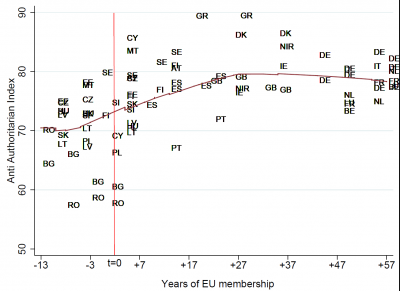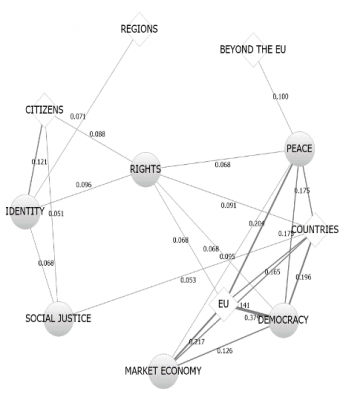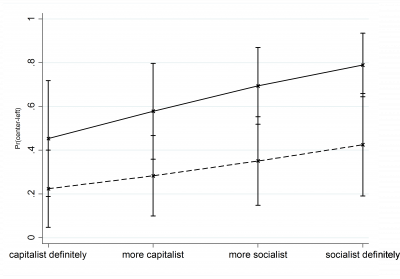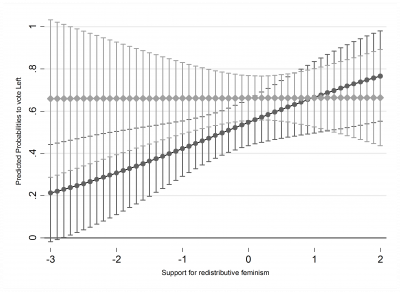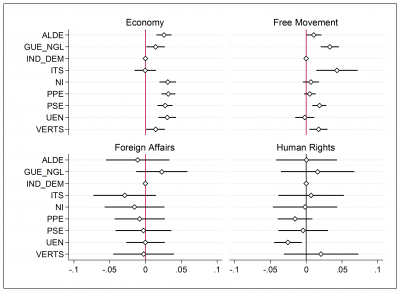Research
My research lies at the intersection of comparative politics and political behavior. At the broadest level, I endeavor to understand how different social and political contexts shape actors’ identities and to delineate the behavioral implications of such processes. The rationale behind my theoretical and empirical inquiries aligns with the notion that identity is dynamic rather than fixed. Accordingly, the premise of my analytical approach is that identity and behavior are mutually-constitutive and their interplay is context-dependent. Hence, my broad research agenda is to identify, trace, and unravel the core elements of different identification processes, their concomitant manifestations and political implications – all these in the European context. To this end I employ a variety of quantitative and qualitative methods such as survey analysis and statistical inference, as well as discourse and automatic text analysis.
My current research agenda concerns the politics of populism in Europe. The objective is to demonstrate that, as of 40 years ago or even earlier, a discrepancy emerged, and has since steadily increased, between the “supply” of parties, on the one hand, and public preferences and demand for such parties, on the other. I call this chasm “representation gap,” and explain it based on a theory of political vacuum, proposed and developed by my colleagues and myself. In this perspective, the success of populist parties in Europe is contingent on the size of this representation gap.
SUMMARY OF PUBLISHED WORK
| Oshri, Harsgor, Itzkovitch-Malka & Tuttnauer 'Risk aversion and the gender gap in the vote for populist radical right parties' (AJPS). Previous research has established that men are more likely to vote for populist radical right parties (PPRPs) than women. This article shows how cross-national and temporal variation in PRRPs’ electoral success interacts with individuals’ risk propensity to affect this gender gap. We hypothesize that gender differences in the electoral support of PRRPs stems from gender differences in risk-taking. The study conceptualizes risk in terms of two components, social and electoral, and demonstrates that women are more risk-averse with regard to both. . Results challenge common explanations for the gender gap and shed light on the role of the electoral context and the different ways women and men respond to it. | |
| Oshri, Yair & Huddy. ‘The Importance of Attachment to an Ideological Group in Multi-Party Systems: Evidence from Israel ’. (Party Politics). In this research, we examine the role of attachment to an ideological group as a source of stability in a volatile multi-party system. In two studies conducted in Israel (N=1,320), we show that a multi-item Attachment to an Ideological Group (AIG) scale is strongly tied to vote choice and political engagement, and its effects are independent of, and more powerful than, issue-based ideology and partisan identity strength. Compared to individuals with a weak ideological attachment, those who score highly on the AIG scale are more likely to vote for a party from their ideological camp and participate in politics. Moreover, in two survey experiments, respondents high in AIG displayed stronger anger or enthusiasm—known harbingers of political action—in response to threat or reassurance to their ideological group’s status, attesting to a link between AIG and political engagement. Our findings underscore the importance of ideological group attachments in a volatile multi-party system. | 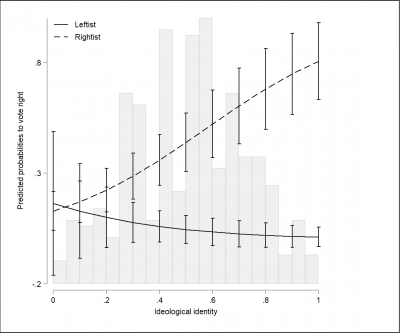 |
Oshri (PhD thesis): My dissertation comprises three main chapters. The three respective research objectives are addressed using a wide array of methodological tools, of which the main are multilevel, cross-sectional and longitudinal regression models and automatic content analysis. The three chapters focus on processes of socialization and identity-building in the EU, often dubbed in the literature as Europeanization.
|
|
Oshri, Sheafer &Shenhav (published in European Union Politics): This article focuses on the micro-foundations of norms’ acceptance through the lens of Social Identity Theory. The main finding of the research, which is based on public opinion surveys and multilevel models, is that membership duration in the EU is closely associated with citizens’ adherence to liberal democratic values. Put differently, the longer a country has been a member of the EU, the stronger its citizens’ support of the EU’s values.
|
|
Oshri & Shenhav (published in European Journal of Political Research): In this article we probe the ways through which the EU incorporates new values and goals. We propose and elaborate a discursive mechanism of differentiated value integration, which is equivalent to the logic of differentiation in policy-making. This mechanism secures a common identity by preserving a core of fundamental values. Importantly, however, it allows adding new values peripherally, and thereby also some changes and developments, without affecting the heart of EU identity. |
|
Shenhav, Oshri, Ofek & Sheafer (published in Political Psychology): In this article, we establish a link between national stories held by voters and possible behaviors of political parties while forming coalitions. Using an exit poll survey conducted during the 2009 elections in Israel, we gauge voters’ stories and then operationalize each party as the aggregation of its voters' story preferences. We apply coalition-formation models in conjunction with theoretical premises of the narrative approach in an attempt to show how political narratives shape the behavior of individuals (voters) and groups (parties).
|
|
Oshri, Kedar & Hazan. 'Voting for Equality: The Gender gap in Voting in the 2013 Israeli Elections.' In this paper, we demonstrate that Israeli women’s positions are more hawkish compared to men’s, yet women support left-leaning parties at higher rates. We address this paradox based on the weight (salience) of a voter’s position regarding a specific issue in determining his or her voting decision |
|
Oshri, Harsgor & Itzkovitch-Malka. ‘Politics of recognition and redistribution: The effect of feminist consciousness on vote choice in the 2013 Israeli elections.’ In this paper, we theoretically distinguish between two dimensions of feminist consciousness. One rests on the case for recognizing women as a unique collective in society, while the other relates to equitable distribution of resources between women and men. Based on a vote-choice model, we demonstrate that redistribution-based feminism has an effect on voting. However, contrary to a common assumption, it has stronger effect on vote choices of men than of women. |
|
| IN REVIEW PROCESS | |
| Kedar, Oshri & Halevy. 'The Changing Gender Gap(s) in Voting: An Occupational Realignment'. In a dramatic reversal from five decades ago, in most Western democracies today, women support left-leaning parties at higher rates than men. We explain this change on the left by focusing on men's vote. We contend that occupational vulnerability to immigration led manual workers, most of whom are men, to abandon the mainstream left and support the radical right at disproportionately high rates. Furthermore, this effect is contingent on economic positions of parties both on the left and the radical right. Drawing on public opinion data from 18 countries over a 46-year period, labor data on skills required in different sectors, and party positions, we conduct both aggregate and individual-level analyses. We find that realignment of the vote along occupational lines in a gender-segregated labor market is at the heart of the change in the gender gap in voting.
| 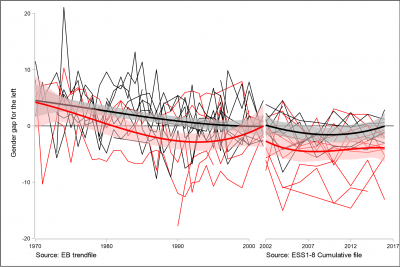 |
Peterburg & Oshri. The relationship between violence as a manifestaion of political uncertainty and electoral behaviour: Evidence from Northern Ireland in the age of Brexit. Individuals’ traumatic experiences in post-conflict societies can be channelled either towards resolving differences or further polarising the political sphere. Between 2001 and 2017, Westminster elections in Northern Ireland catapulted the hardline parties to the forefront. In the 2019 election, however, these parties’ vote share slumped, whilst that of the centre ground parties’ soared, resulting in the lowest level of political polarisation since the early 2000s. What accounts for the transition from a polarised vote to a moderate one? Relying on surveys, media references and electoral data, we find that voters’ behaviour is linked to their threat mindset, a state of mind contingent on the perceived sustainability of constitutional order in the region. Brexit, eroding Good Friday’s achievements, incentivised individuals to vote for parties representing non-sectarian interests. Our results contribute to the literature by demonstrating that voters employ party competition as a balancing mechanism to offset the risk of violence. | 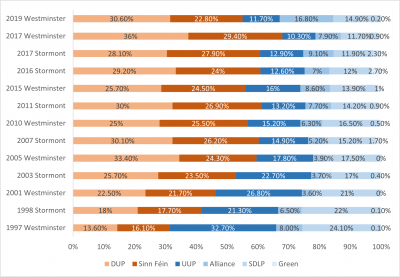 |
WORKING PAPERS |
|
Oshri & Fogel-Dror.'A matter of identity: Measuring agenda setting power in a fragmented parliament.' Close to submission. Presented at EPSA 2017. This paper assesses legislators' discursive interactions in order to examine the agenda-setting power of groups in the European Parliament. First, we map the discourse space in the EP by automatically topic-modeling the discourse in its 6th session. Next, we extract the net effect of each group on the discourse, showing how the political-discourse space in the EP is divided according to groups, with different groups controlling different agendas. Finally, we demonstrate that, although the EP is organized along transnational lines, it enables groups with different political affiliations to make their voices heard, both nationally and transnationally. Whose voice is the loudest depends on the issue at hand. |
|
| Itzkovitch-Malka, Oshri, Mor & Shenhav. 'Talking the talk and walking the walk? How legislators reconcile tensions between competing principals'. In democracies, politicians are, almost by definition, cross-pressured. They represent their constituency, and some would say, their country as a whole, but also have to toe the party line. How do they reconcile tensions between competing principals? Leveraging on the case of the Brexit vote – which allowed legislators to be directly informed about their constituency’s preferences on a specific policy before they take action, we scrutinize vote records but also the speech of cross-pressured legislators in the House of Commons. We find that while their vote inevitably sides with one principal, their speech is directed towards the incongruent principal, aiming to compensate for incongruent policy choices. We further find that different compensating strategies are tailored specifically to different principals, satisfying the specific needs of each principal. These findings shed light on the role of parliamentary speech in representative democracy and expand traditional understanding of representation. | 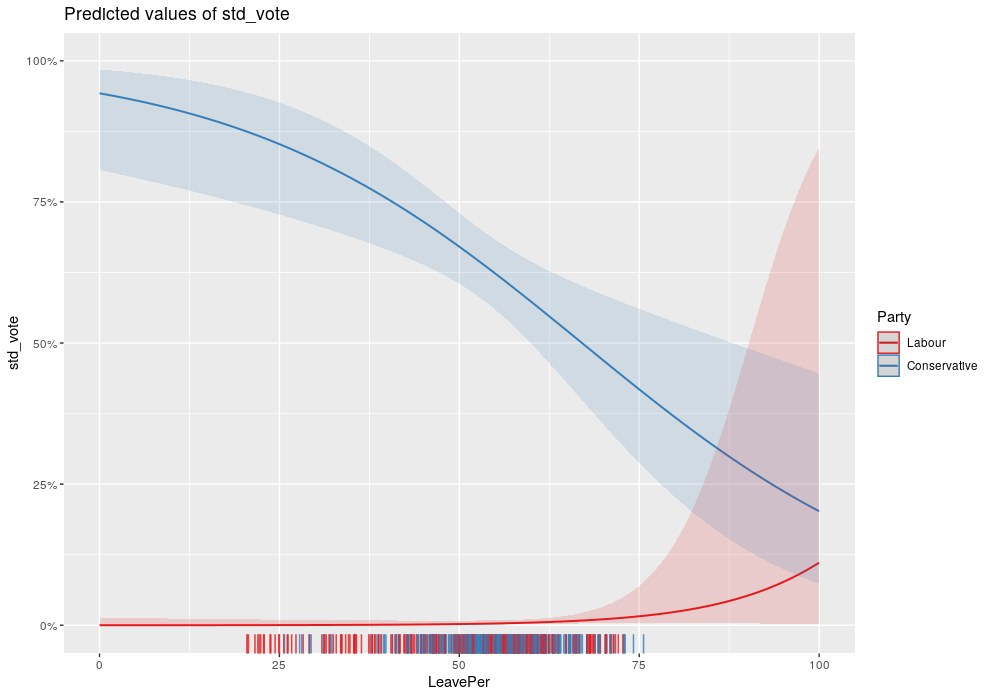 |
Oshri & Rahat. ‘Personalization and Populism: Separated yet Linked Phenomena’. Personalization and populism are two rising and interlinked phenomena that share similar causes and consequences. However, a systematic conceptual, theoretical and empirical analysis of the relationship between populism and personalization has not been attempted so far. This paper aims to contribute to this relatively unexplored arena. In the attempt to bridge the literature on populism and personalization of politics, the paper identifies the commonalities between the two phenomena. It also demonstrates that each of these two can be seen as a stand-alone phenomenon, though more often than not they tend to appear together. Finally, the paper presents the results of an empirical analysis that examines the relationship between populism and personalization. | 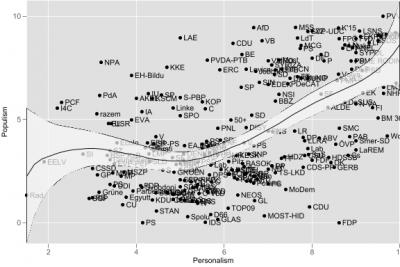
|
| aig_august2020.pdf | 1.15 MB |
